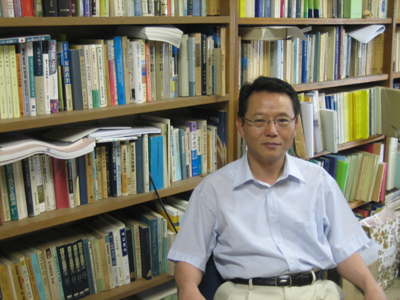
Recently, Korea and Japan face a difficult reality resulting from the Dokdo problem. The recent summons of the Korean Ambassador to Japan clearly reveals the abnormal situation Korea and Japan undergo these days. The Dokdo problem is the most outstanding and sensitive matter for Korea and Japan because it is related to a territory issue, one of the most important components which constitute a nation. Moreover, the Dokdo problem is related to the history of Korea and Japan. Especially, Korean people judge that this can be thought of as the other way of Japan's invading Korea, since Japan included Dokdo in its territorial bounds in 1905. In many ways, Korea and Japan have a different asserting attitude they take for the Dokdo problem.
In the case of Japan, through the homepage of the Ministry of Foreign Affairs of Japan, Japanese people explain the basis of asserting their rights over Dokdo as Japanese territory through ten reasons to justify their assertion. Among them, the most prevalent and persuasive assertion Japan stands on is the 'Prior Preoccupation of Ownerless Area' (無主先占論) on the ground that Japan already managed Dokdo as its territory since the middle of the 17th century and insists that Japan formally included Dokdo as its territory from February, 1905. Opposing to the assertion Japan stands on, Korea insists that Dokdo already belonged to Korean territory since the Three States on the ground that Usan-do (于山島) referred to Dokdo in such an old book as Donggukmunheonbigo (東國文獻備考).
However, Japan still insists that Dokdo is Japan's territory by claiming that Dokdo did not belong to the territory Japan had to abandon in the San Francisco Treaty of Peace, which stipulated Japan's territory after World WAR II, while Korea insists that it is illogical for Japan to insist Dokdo is Japan's territory simply because Dokdo was not included in the San Francisco Treaty. Hence, Koreans conclude that Japan's assertion is a groundless logic reasoned from Japan's own point of view. Further, Korea insists Dokdo was originally included in the San Francisco Treaty but it was excluded from the territorial category by Japan's lobbying activity. Reasoning the groundless Japan's assertion, Koreans come to the conclusion that Dokdo belonges to Korean territory.
Insisting the domination of Dokdo based on the above stated reasons, Japan is recently trying to describe Dokdo as the territory of Japan in the society textbooks of middle schools. Further, Japan not only tries to sue about the Dokdo problem to the International Court of Justice but also tries to inscribe Dokdo as 'Dakeshima dispute area' on the world map and on its official documents. However, at the position of Japan, Japan has no other choice but to assert its possession of Dokdo except bringing a war but it is definitely impossible in reality when thinking of the possible enormous ruins Japan would save to pay. As another choice Japan can think of, it will be possible by the means of suing about this issue to the International Court of Justice. However, when Korea, the accused, does not respond to Japan's accusation, it does not have any actual legal basis by itself.
If so, can the Koreans just wait until this matter is settled? The answer is definitely 'No.' For example, if Korea just leaves Japan's elaborate plan of taking hold of Dokdo, it will gradually form a natural public opinion that Japan actually governs Dokdo in the international world. Hence, justifying Korea's domination of Dokdo will be more difficult because of the relatively strengthened power Japan gets to have.
To prevent such a problem from happening, Korea should let this problem be more widely known to the world, especially about the justification of exercising its rights over Dokdo. To settle this problem wisely, what Koreans need to do is collect related historical data to logically justify its assertion. Next, based on the surrounding matters, Korea needs to enact related international legal laws because a territorial problem is more concerned with the historic and lawful title the country has than the actual rule of the territory. Koreans need to make it clear that these days' Japan's asserting its rights over Dokdo originated in Japan's subconsciously rooted imperialism toward Korea. Hence, it is so urgent for Koreans to actively claim the rights to rule Dokdo to the international world now.
By Lee Sung-hwan
Prof. of Dept. of Japanese Studies
Prof. of Dept. of Japanese Studies








